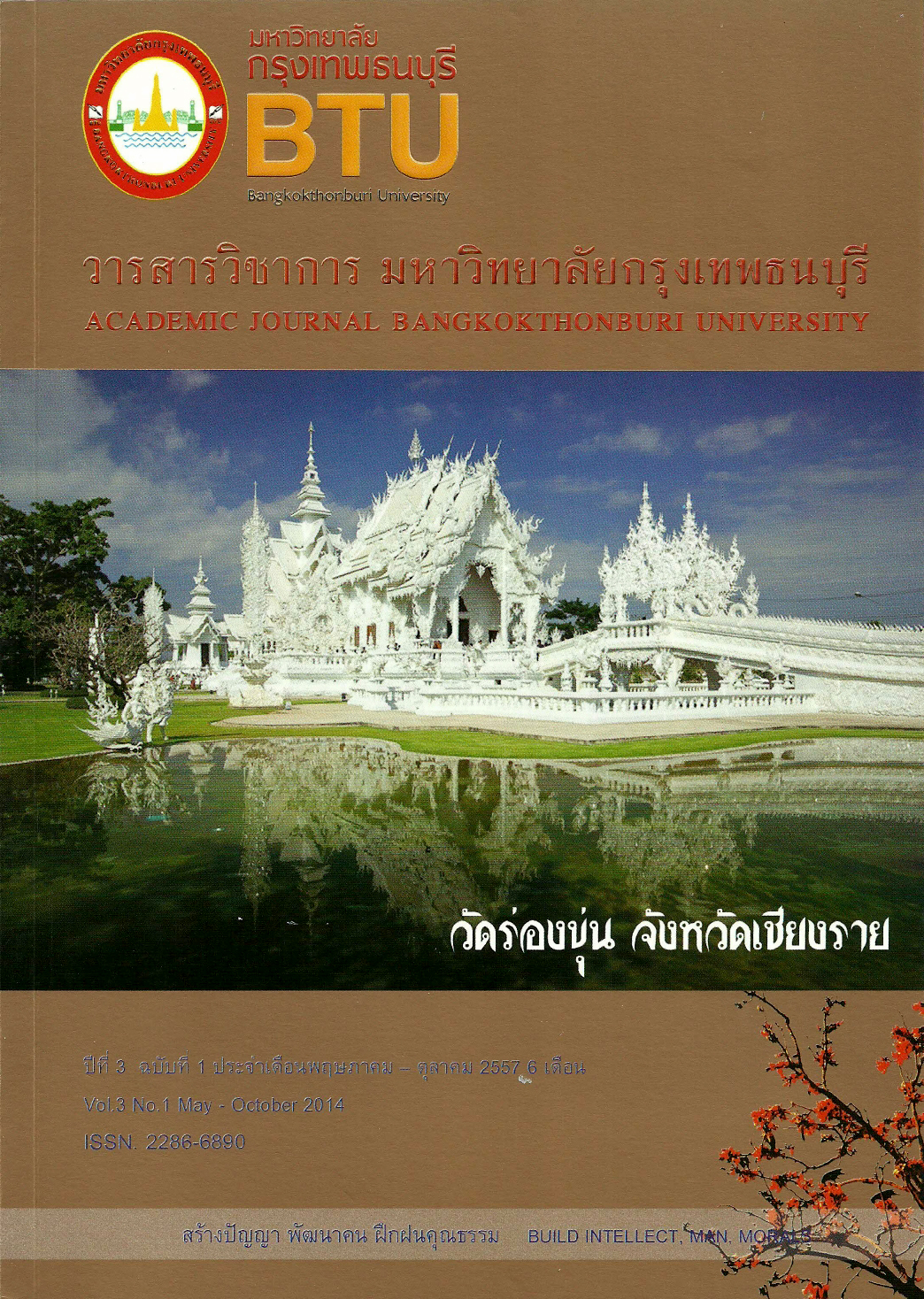บทบาททางการปกครองของกำนัน ผู้ใหญ่บ้าน ภายใต้พระราชบัญญัติลักษณะปกครองท้องที่ (ฉบับที่ 11) พ.ศ. 2551
Main Article Content
Abstract
การเปลี่ยนแปลงโครงสร้างอำนาจหน้าที่ของกำนัน ผู้ใหญ่บ้านตามพระราชบัญญัติลักษณะ ปกครองท้องที่ (ฉบับที่ 11) พ.ศ. 2551 ทำให้ระยะเวลาดำรงตำแหน่งของกำนัน ผู้ใหญ่บ้านยาวนาน ถึงอายุ 60 ปี เพื่อให้กำนัน ผู้ใหญ่บ้านเป็นกลไกทางการปกครองสามารถตอบสนองความต้องการ ของรัฐ ส่งผลให้กำนัน ผู้ใหญ่ให้ความสำคัญต่อการตอบสนองของต้องการของรัฐมากกว่าการตอบสนอง ต่อความต้องการของประชาชน มีพระราชบัญญัติหลายฉบับที่ผ่านมาได้กำหนดให้กำนัน ผู้ใหญ่บ้าน ดำรงตำแหน่งถึงอายุ 60 ปี มาแล้วหลายฉบับ ในส่วนของผลดี กำนัน ผู้ใหญ่บ้านที่มีผลงานดีสามารถ ตอบสนองความต้องการของรัฐได้เป็นกลไกทางการปกครองตามที่รัฐต้องการ ปฏิบัติหน้าที่อย่างตรงมา ตรงไปย่อมมีผลกระทบกับประชาชน หรือผู้เสียผลประโยชน์ ไม่ต้องกังวลกับการเลือกตั้งเมื่อหมด วาระลง สว่ นผลเสียการดำรงตำแหนง่ เปน็ เวลานานทำใหเ้ กิดการแขง่ ขันการเขา้ สูต่ ำแหนง่ สูง ความเฉื่อยชา เพิกเฉยต่อหน้าที่ ขยายอิทธิพล บารมี การแสวงหาความร่วมมือเป็นฐานเสียงทางการเมืองให้กับ นักการเมืองทุกระดับ มากกว่าการบำบัดทุกข์บำรุงสุขแก่ประชาชน การถอดถอนกำนัน ผู้ใหญ่บ้าน โดยประชาชนเป็นไปได้ยาก รัฐบาลยังไม่มีมาตรการแก้ไขปัญหาความบกพร่องทางการปกครองของ กำนัน ผู้ใหญ่บ้าน เพื่อป้องกันการใช้อำนาจหน้าที่ไม่เหมาะสม การมีอิทธิพลครอบงำประชาชน
เพื่อแก้ไขปัญหา ความบกพร่องทางการปกครองของกำนัน ผู้ใหญ่บ้าน รัฐบาลควรมีมาตรฐาน เกณฑ์การประเมินผลการปฏิบัติหน้าที่ของกำนัน ผู้ใหญ่บ้าน และประเมินศักยภาพความรู้ความสามารถ ทางการปกครองเป็นประจำทุกปี
กำนัน ผู้ใหญ่บ้าน เป็นตัวแทนของประชาชน มาจากการเลือกตั้ง ควรมีวาระการดำรงตำแหน่งเป็น คราวๆ ไป ไม่ควรเกินคราวละ 5 ปี การเลือกตั้ง เป็นการเปลี่ยนแปลงกำนัน ผู้ใหญ่บ้าน โดยสันติวิธีเป็น กระบวนการคัดเลือกผู้นำอีกทางเลือกหนึ่งในระบอบประชาธิปไตย
The Government Role of Sub-District and Village Headman under Local Government Act, (Number 11) of B.E. 2551
The authority structural change of sub-district and village headman based on Local Government Act (Number 11) of B.E. 2551 longed their positions more until they were 60 years old to prepare them as an administrative mechanism and to respond the needs of the government. This made them consider more the government needs than public needs. There were previous many Acts to set them to be in their position until they were 60 years old.
For advantage, the village and headman who had good work performances could be able to respond the government needs as an administrative mechanism that the government needed. To work straightforward could have impact to people or those who had not received the benefits as possible without being worry about the election that time was over.
For disadvantage, to be in their position long caused to political competition to access into their position to be high. To be indifferent, to ignore on duty, to expand influence and charisma, and to search for corporation to be political bastion to politicians in all levels more than get rid of sufferings and make happiness to people. The demotion of the village and headman by people were very difficult. The government did not have measures to resolve the governed problems of them to prevent the bad power and influence covered with people to solve the governed problems of them. The government should have measures and criteria for evaluation of work performance of them and evaluate the governed knowledge efficiencies annually.
The sub-district and village headman were known as a representative of people. They were elected from people. Thus, they should be in position at time, and holding the post of them should not be more than 5 years. Changing the sub-district and village headman with peaceful procedure was regarded as the other process of electing the leader in democratic system.


